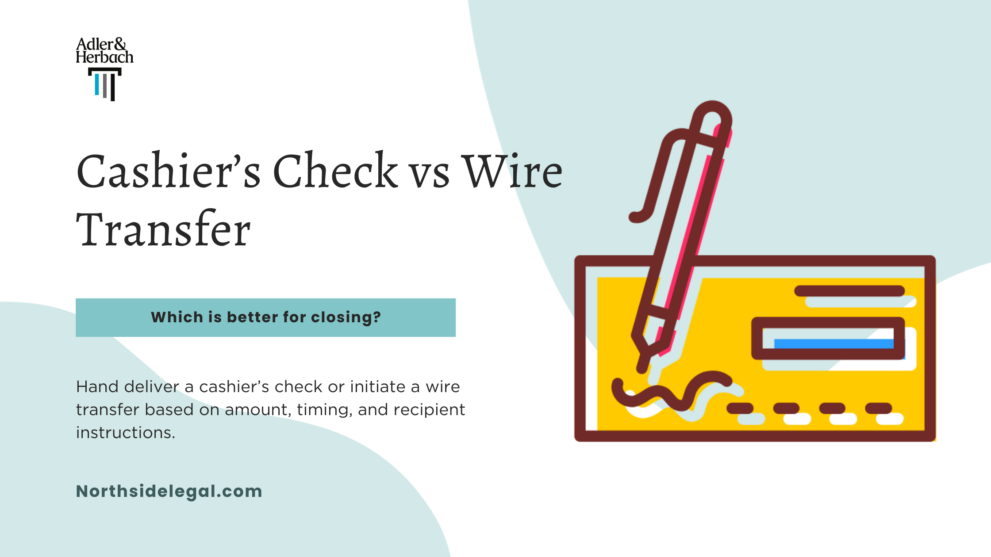You’re nearing the final stretch of buying a home – it’s almost closing day! Now it’s time to figure out the best way to pay your closing costs. You essentially have 2 options: getting a cashier’s check from your bank or wiring the money directly. Both have pros and cons depending on your specific scenario.

What is a Cashier’s Check?
A cashier’s check is a check issued by a bank or credit union from their own funds. The money is withdrawn from the purchaser’s account when the check is printed, so the funds backing the check are guaranteed. This makes it more secure than a personal check.
If the cashier’s check bounces for any reason, the bank is responsible for the funds. The recipient can feel confident the check will clear. Cashier’s checks have security features like watermarks to prevent fraud.
To get a cashier’s check, you go to your bank branch with:
- Photo ID
- Exact dollar amount needed
- Recipient name
- Sufficient funds in your account
Depending on the bank and your account type, there is typically a small fee, around $10-$25. You will receive an official check with the recipient’s name that you bring with you on closing day.
What is a Wire Transfer?
A wire transfer allows you to electronically send closing funds from your bank account directly to the recipient’s account. Across the world, banks use a secure system called SWIFT to wire money between financial institutions.
With a wire transfer, the money is available to the recipient almost immediately once sent. Wires can be initiated online, over the phone, or in person at your bank.
To wire money, you will need:
- Government ID like a driver’s license (if you are wiring in person at the bank)
- Your and recipient’s contact info
- Your and recipient’s account and routing numbers
- Amount being sent
Pros and Cons of Each Method
1. Cashier’s Check
Pros:
- Guaranteed funds
- Secure from fraud
- Provides documentation
Cons:
- Fees around $10-$25
- Must obtain in person
- Risk of misplacing the check
- Title companies will not accept for amounts over $50,000
2. Wire Transfer
Pros:
- Fast availability of funds
- Can be done remotely
- Preferred for large amounts
Cons:
- Irreversible once sent
- Risk of fraud
- Expensive fees around $25+
Cashier’s Check vs Wire Transfer: Main Differences
| Cashier’s Checks | Wire Transfers | |
| Amount | Generally better for smaller amounts | Allow fast sending of large sums |
| Processing Time | Requires time before closing | Fast |
| Fees | Lower fees | Higher fees |
| Paper Trail | Provides a paper trail | Digital only |
| Cancellation Option | It cannot be reversed | It cannot be reversed |
| Reversibility | Can be reversed | It cannot be reversed (though it can be returned from recipient) |
Which Should You Use to Close on a Home?
Talk to your real estate agent and title company about the best option. Most require a cashier’s check or wire for security reasons. Wires may be required for amounts over $50,000.
Make sure your closing funds are ready a day or two in advance! Hand deliver a cashier’s check or initiate a wire transfer based on amount, timing, and recipient instructions. Both methods allow secure, guaranteed delivery of your money.


